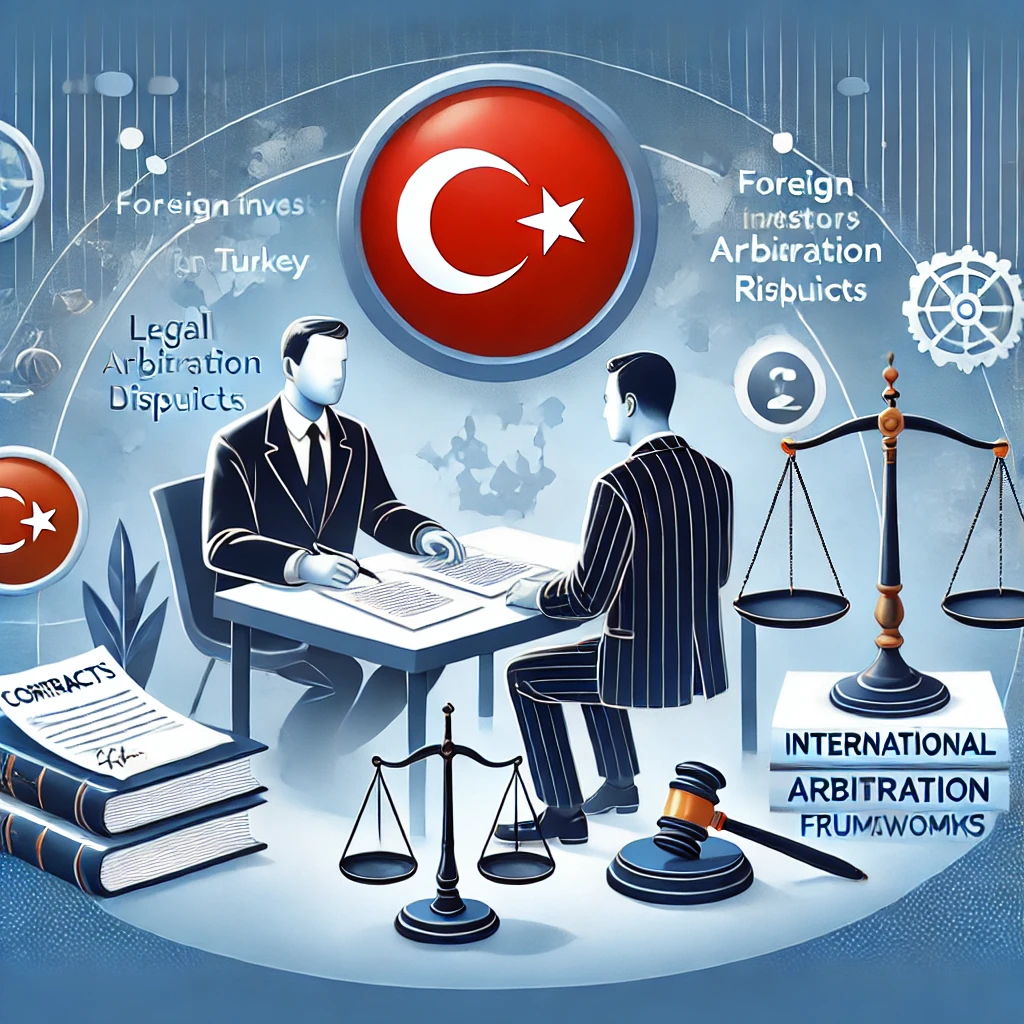Introduction
Foreign investors in Turkey often engage in real estate development or acquire property assets to expand their business operations. However, disputes may arise when property rights are violated through expropriation, regulatory actions, or governmental interference. In such cases, foreign investors have the option to seek remedies through arbitration, either domestically or through international dispute resolution mechanisms. This article explores the legal framework governing property rights in Turkey, the role of arbitration in investor-state disputes, and the steps foreign investors can take to pursue arbitration effectively.
I. Legal Framework Governing Property Rights in Turkey
- Turkish Constitution (Article 46)
- Allows expropriation of private property for public interest, provided that fair compensation is paid to the property owner.
- Expropriation Law (No. 2942)
- Governs the procedures for expropriation and compensation, including property valuation and the rights of foreign investors.
- Foreign Direct Investment Law (No. 4875)
- Provides equal treatment to foreign investors and ensures that expropriation cases involving foreign parties follow the same procedures as those for Turkish nationals.
- Bilateral Investment Treaties (BITs)
- Turkey has signed Bilateral Investment Treaties (BITs) with multiple countries, offering arbitration mechanisms for disputes involving property rights violations.
- ICSID Convention (International Centre for Settlement of Investment Disputes)
- Turkey is a party to the ICSID Convention, which offers a framework for international arbitration in disputes between foreign investors and states.
II. Common Scenarios Leading to Property Rights Disputes for Foreign Investors
- Expropriation Without Fair Compensation
- Disputes arise when the government expropriates property without providing adequate compensation, or delays payment.
- Regulatory Changes Impacting Property Value
- New regulations or zoning changes may reduce the value of property investments, leading to disputes over indirect expropriation.
- Disputes Over Permits and Licensing
- Foreign investors may encounter permit cancellations or operational restrictions, impacting their property use and business plans.
- Restrictions on Transfer of Ownership
- Regulations restricting the sale or transfer of property to third parties can lead to conflicts with foreign investors seeking to exit the market.
- Non-Enforcement of Court Judgments or Arbitration Awards
- Disputes may also arise if local authorities refuse to enforce court judgments or arbitration awards favoring the investor.
III. Arbitration Mechanisms Available to Foreign Investors
- International Arbitration (ICSID)
- Foreign investors can initiate arbitration under the ICSID framework if their home country has a BIT with Turkey. ICSID rulings are binding and enforceable in member states.
- UNCITRAL Arbitration
- Some BITs allow foreign investors to pursue arbitration under the UNCITRAL Rules, which offer flexibility in procedural matters.
- Investment Arbitration through Bilateral Investment Treaties (BITs)
- BITs provide specific provisions for investor-state arbitration, enabling foreign investors to directly file claims for property rights violations.
- Commercial Arbitration through Istanbul Arbitration Centre (ISTAC)
- Investors may opt for commercial arbitration at the ISTAC, which offers fast-track procedures and expert arbitrators for property disputes.
- Ad Hoc Arbitration Clauses in Contracts
- Foreign investors can include ad hoc arbitration clauses in contracts with Turkish authorities, allowing them to seek arbitration in case of disputes.
IV. Steps for Foreign Investors to Initiate Arbitration
- Identify Applicable Treaties or Arbitration Clauses
- Investors should determine whether a BIT, ICSID agreement, or contract clause provides access to arbitration.
- Engage Experienced Legal Counsel
- It is essential to consult with legal experts familiar with Turkish law and international arbitration procedures.
- Submit a Notice of Dispute
- Investors must notify the Turkish government of the dispute, providing details about the property rights violation and desired remedies.
- Select an Arbitration Tribunal
- Depending on the applicable rules, the investor and the Turkish government will select arbitrators or appoint an arbitration panel.
- Pursue Arbitration Proceedings
- Investors will present their case, submit evidence, and attend hearings as part of the arbitration process. Both parties are bound by the final award issued by the tribunal.
V. Challenges and Considerations for Foreign Investors in Arbitration
- Costs of Arbitration Proceedings
- International arbitration can be costly and time-consuming, requiring careful financial planning.
- Enforcement of Awards Against States
- Although ICSID awards are binding, enforcement against state assets can be challenging if the state refuses to comply.
- Choice of Law and Jurisdictional Issues
- Disputes may arise over the applicable law governing the arbitration or the jurisdiction of the tribunal.
- Political and Regulatory Risks
- Investors must consider the potential impact of political changes or regulatory amendments on their arbitration case.
VI. Recommendations for Foreign Investors
- Include Arbitration Clauses in Contracts
- Foreign investors should negotiate arbitration clauses in contracts with Turkish authorities to secure access to dispute resolution.
- Conduct Thorough Due Diligence
- Investors should assess the regulatory environment and identify potential risks before investing in property assets in Turkey.
- Monitor Changes in Laws and Regulations
- Staying informed about legal and regulatory changes helps investors mitigate risks and avoid disputes.
- Use Mediation as a Pre-Arbitration Step
- Investors can explore mediation before initiating arbitration to resolve disputes amicably and avoid lengthy proceedings.
VII. Conclusion
Property rights violations can pose significant risks for foreign investors in Turkey, but arbitration mechanisms provide a reliable avenue for resolving disputes. Through ICSID, UNCITRAL, BITs, and ISTAC, investors can pursue compensation or remedies for expropriation and other violations.
By including arbitration clauses in contracts, conducting thorough due diligence, and engaging experienced legal counsel, foreign investors can protect their interests and navigate the complexities of arbitration effectively. As Turkey continues to attract international investment, effective dispute resolution mechanisms will remain crucial for ensuring investor confidence.

Yanıt yok